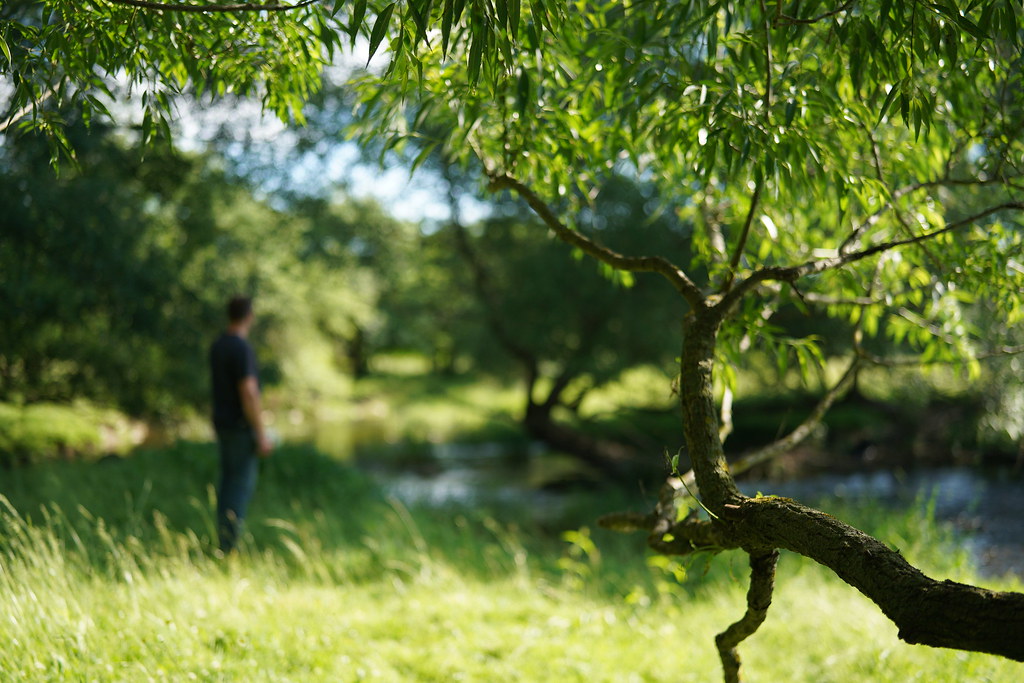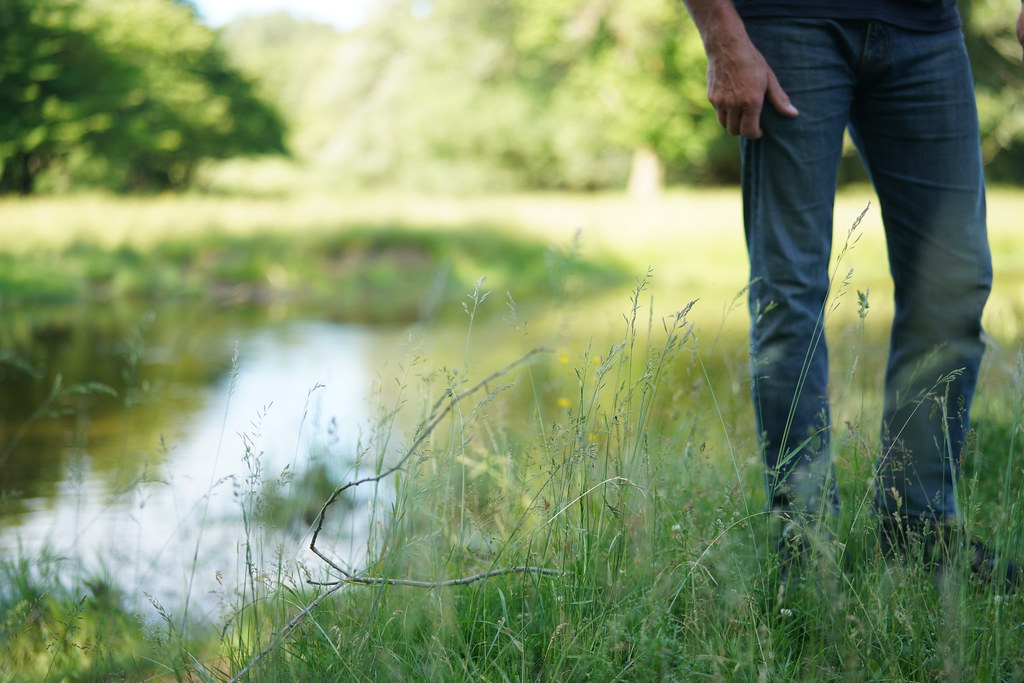When our uncommonly wise and anointed friend, Rich Villodas invited me to write the foreword for his latest book, Good and Beautiful and Kind, every page of wisdom kindled a longing in my spirit—a reminder that we have, indeed, lost much goodness and beauty and kindness in recent years. Maybe you, too, feel almost a physical ache for wholeness to return to our communities, churches, and hearts. As I read every page of this astonishing book, I just deeply appreciated how Rich doesn’t give us more to do as we seek healing but less. Less to defend. Less to protect. Less to prove. As Rich reminds us, how good God is to ask us to be true to who we are as His beloved so we can live in freedom rather than behind our walls. It’s an absolute grace to welcome my brilliant friend, Rich Villodas, to the farm’s table today…
One reason the world remains deeply fractured is that there’s too much to defend. This is particularly true within us. The interior walls we build are too deep and too high to root us in love.
Why do we have a hard time navigating conflict?
Why do we find it excruciating to receive criticism?
Why are we filled with anxiety over the disagreements we have?
Perhaps it’s because we have constructed a life that needs constant defending.






It’s something I’m familiar with. I remember my first time preaching at New Life. Pete Scazzero, who was the senior pastor at the time, called me aside in the church lobby after I delivered my sermon. Just prior to our conversation, I was shaking hands with congregants and hearing delightful words of encouragement.
“Pastor Rich, thanks for that word,” one had said.
“God spoke right to my heart, pastor,” said another.
I was feeling pretty good about my twenty-eight-year-old self, when Pastor Pete called me to the side. Evidently, he had a post-service practice of reviewing the sermon. The goal was to help strengthen it for the following service.
When he called me, I noticed he had a legal pad with all kinds of notes scribbled on it. I had a sense something was coming. I was on edge.
“Great sermon, Rich. Way to go,” he said. “Do you know what you can do to strengthen it for the next service?”
I defensively thought, Do you know what you can do, bro?
“Humility is not just doing a lowly task; it’s a life committed to the hard task of lowering one’s defenses.”
What was happening in me? In that moment, my guard went up. My defensiveness was clear as day—to me at least. Pastor Pete would go on and give poignant tips for taking the sermon to the next level. I took down some notes but was still bothered. My lack of humility in this moment made it difficult to connect with him and see his feedback as a gift.
You see, humility is not just doing a lowly task; it’s a life committed to the hard task of lowering one’s defenses.
When we envision humility, we often think about taking on menial duties no one else wants to do. And, of course, that’s a facet of it. We have in mind someone who doesn’t seek the spotlight but shines the light on others. Again, another good image of a humble life.
But the angle of humility that we desperately need for our fractured world is seeing it as the ability to live freely from protecting the false self—living free from the defensiveness that closes us in on ourselves. The fractured relationships we experience emerge out of our inability (or our refusal) to lower our defenses. Instead of seeing companions, we see competitors. We view people who disagree with us as threats to be eliminated.
“The walls we build are for one reason: to protect the false self.”
The walls we build are for one reason: to protect the false self.
The false self is a term many use to describe the identity we construct that conceals the true self found in Christ. Thomas Merton wrote in New Seeds of Contemplation, “My false and private self is the one who wants to exist outside the reach of God’s will and God’s love—outside of reality and outside of life.”
In his book The Deeper Journey, Robert Mulholland, Jr., described his false self as, “a control freak that manipulates people and situations to protect it from disturbances to its status quo.”
“The true self is the place within us where we are found securely wrapped in God’s love and have no need to project or protect it.”
While the “the false self . . . is offended (about every three minutes) because it is fragile, the true self, on the other hand, is unoffendable.”
The true self is the place within us where we are found securely wrapped in God’s love and have no need to project or protect it. The true self finds its identity in something much deeper than human words of approval or criticism. The false self is incapable of this level of freedom, but it is where most of the world lives from.
Humility, then, is the ongoing commitment to live from the true self. Not an easy task, I know.








I’m reminded of this difficulty on a regular basis as a pastor. While some might assume—because I’m a pastor—that I’m emotionally centered, eager to be present with others, and not easily affected by criticism, I know the truth (as does my wife) of my “soul fragility.”
Soul fragility shows itself when you get an email from someone who wants to discuss an important matter and your interior walls go up five seconds into reading it.
Soul fragility is present when a blind spot of yours is identified by a friend and you emotionally move away from that person as a result.
Soul fragility happens when someone on social media disagrees with your post and you go ahead and mute or block them without even entertaining what they are saying.
Every time our false self is threatened, it reveals the fragility we carry.
“Humility is the antidote to soul fragility.”
Humility is the antidote to soul fragility.
Or said another way, fragility can be a doorway to humility. Our fragility is one of the most important signs that the false self is running the show.
And when we allow ourselves to be led by our fragility instead of protecting it, we open ourselves to a way of life marked by internal freedom, no longer governed by the words and actions of others. This is what Jesus offers us in his most important sermon.
Jesus, the perfect personification of the humble life, calls us to live in the humble way of God’s kingdom, a way marked by poverty of spirit. This way forms us toward wholeness.
Poverty of spirit is language Jesus gives in the Sermon on the Mount to describe our utter dependence on God. Truly, our lives are found to be rich in him to the degree that we recognize our inner poverty.
The poor in spirit are those who refuse to build a life apart from the love of God. Poverty of spirit is living detached from the incessant need to cling to things that prop up our false self. It’s the gradual movement toward a nonreactive and carefree existence, living freely from the depths of God’s acceptance.

Rich Villodas is the author of the award-winning book The Deeply Formed Life and the Brooklyn-born lead pastor of New Life Fellowship, a large, multiracial church in Elmhurst, Queens, that has more than seventy-five countries represented in its congregation.
In his latest book, Good and Beautiful and Kind, Rich eloquently guides us back to the example Jesus offers of being both strong and tender enough to tear down walls of hostility and find true wholeness and healing in today’s world.
This world is tearing itself apart, and the impact on our bodies and relationships is overwhelming.
But Rich knows the ways you can experience real peace, joy, and love right here and now, and he shares how in this bold new book, Good and Beautiful and Kind.
[Our humble thanks to WaterBrook for their partnership in today’s devotion ]







